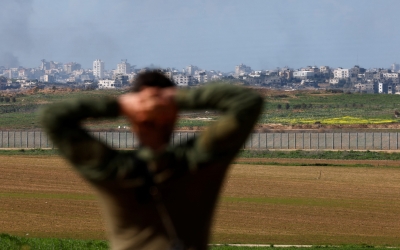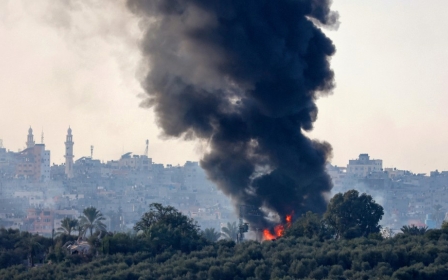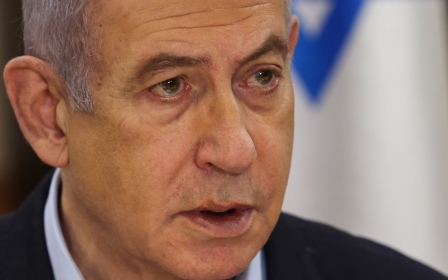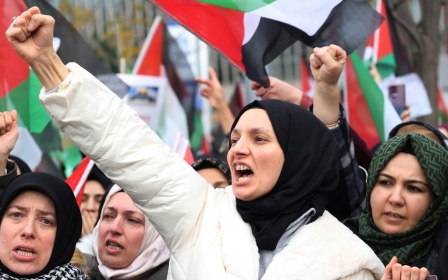Gaza ceasefire: Talk of an imminent deal is psychological warfare
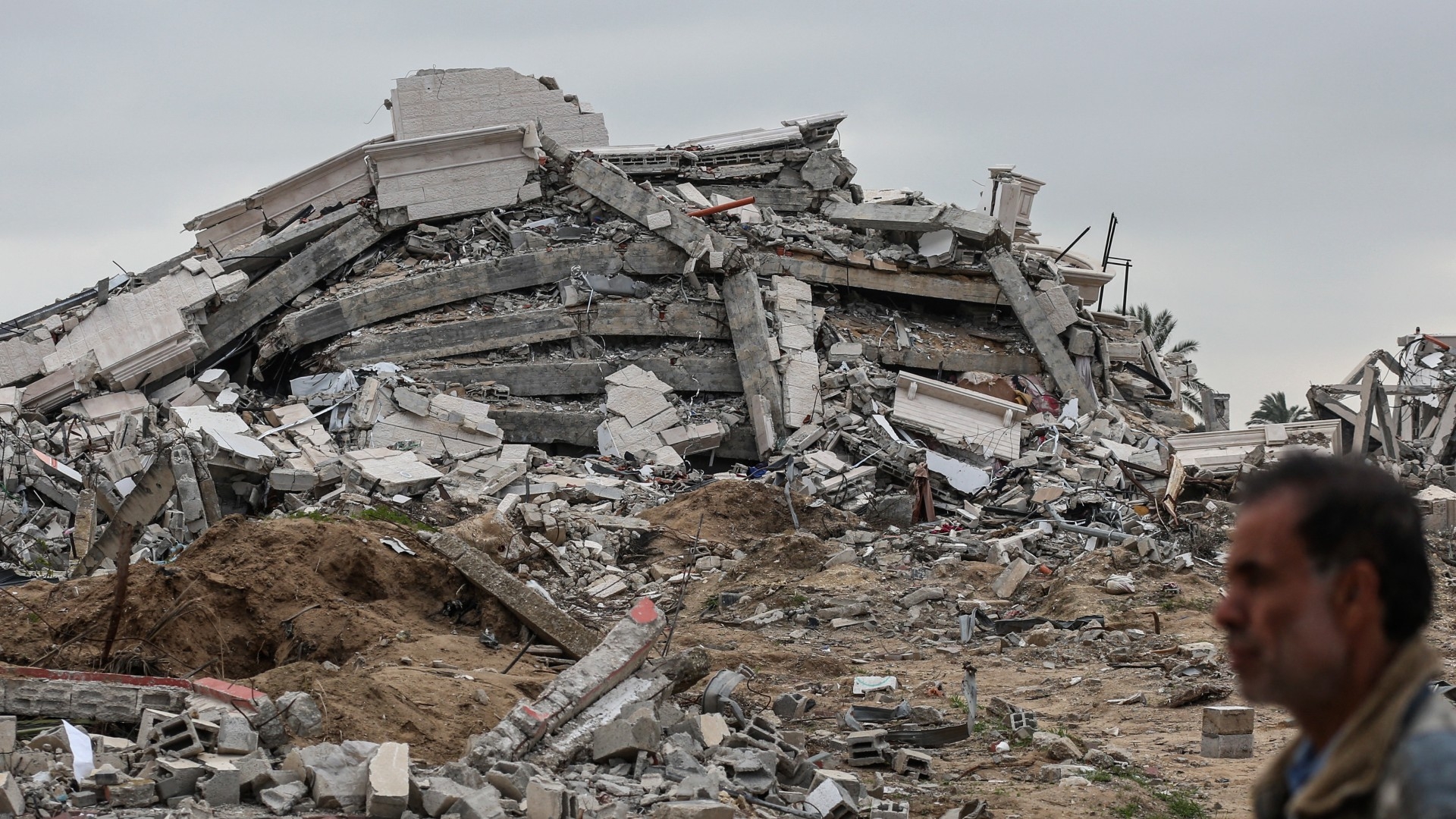
With each passing day, the situation in the Gaza Strip deteriorates further at a humanitarian and political level.
It’s an open secret that negotiations between Hamas and the Israeli government have hit a deadlock, lacking the momentum needed for a significant breakthrough since the conclusion of their last agreement.
This impasse underscores the complex challenges faced by Hamas, which is classified as a terrorist organisation in the UK and other countries, in securing its demands from Israel.
Hamas often initiates operations that aim to bring Israel to the negotiating table, in the hope that this could lead to concessions. This is partly because of the longstanding stalemate in the Palestinian political arena, combined with the fluctuating stance of successive Israeli leaders towards Hamas’s governance of Gaza.
The inconsistency in Israel’s approach reflects the broader geopolitical and internal complications that have long characterised its relationship with Hamas, particularly since Hamas took control of Gaza.
New MEE newsletter: Jerusalem Dispatch
Sign up to get the latest insights and analysis on Israel-Palestine, alongside Turkey Unpacked and other MEE newsletters
This dynamic underscores the difficulties in navigating a path towards potential conflict resolution, in a landscape marked by deeply entrenched positions and historical grievances.
A pivotal moment in Israeli-Palestinian conflict dynamics came in 2011, when Israel agreed to free more than 1,000 Palestinian prisoners in exchange for the release of Israeli soldier Gilad Shalit, who was abducted by Hamas in 2006.
This landmark deal catalysed a strategic reassessment within Israel, leading to new legislation in 2014 that aimed to restrict future prisoner swap deals.
Shifting approach
Propelled by concerns over the security, societal and political costs of such exchanges, the law empowered judges to prevent the release of prisoners convicted of severe crimes. This shift came amid internal debate over the Shalit exchange, which pitted security imperatives against the moral obligation to recover captives.
Today, Israel’s response to the abduction of its soldiers by Hamas signifies a profound transformation in its approach to such negotiations, while underscoring the challenges of securing the release of captives without bending to the demands of armed groups.
Follow Middle East Eye's live coverage of the Israel-Palestine war
Israel wants to recover its prisoners through military efforts, while ensuring that Hamas does not portray any outcomes as victories - a strategy aimed at conveying a message that hostage-taking will not yield political advantages.
For its part, Hamas is navigating not only its interactions with Israel, but also broader regional dynamics, including among states that have their own reasons for wanting the movement’s influence to wane. Egypt in particular is a pivotal player.
Such reports and statements point to the psychological tactics at play, with Israel and the US aiming to exploit Palestinians' desire for an end to Israel's onslaught
The Gaza Strip’s Rafah crossing, controlled by Egypt, stands as the territory’s primary gateway to the outside world, besides the Israeli-controlled Erez crossing. Egypt has long viewed Gaza through the lens of security concerns, a focus that has intensified under President Abdel Fattah el-Sisi. His threat discourse on the Muslim Brotherhood extends by association to Hamas, which shares a common ideological lineage.
Even in instances where Egypt acts as a mediator between Hamas and Israel, it is often perceived as being influenced by its own national security interests, positioning Cairo as an active participant in the negotiation process rather than a neutral facilitator.
This creates another layer of complexity for Hamas in securing deals with Israel.
Political dynamics
In addition, the intricate dynamics within the Palestinian political landscape pose challenges. Fatah, as Hamas’s main rival, appears strategically positioned to capitalise on any potential weakening of Hamas.
Historically, Fatah has been keen for its Palestinian Authority (PA) to regain control of Gaza, making it a viable post-conflict successor. This strategic positioning is designed to reaffirm the PA’s significance to its western allies.
But today, nearly five months into the Gaza war, the apparent lack of direct communication between prominent Fatah and Hamas leaders highlights the profound internal divisions, despite the fact that during the early stages of the war Hamas has called for unity and emphasised that the moment was very convenient to end the internal schisms between the two rivals.
Remarkably, during PA President Mahmoud Abbas’s visit to Doha earlier this month, aimed at securing a Gaza ceasefire, there was no indication of any meetings with Hamas representatives. This suggests Fatah is intentionally maintaining a distance from Hamas.
The effects of the PA’s estrangement from Hamas extend to the broader negotiation process. The PA’s direct involvement would shift the dynamics significantly, given its status as the sole internationally recognised Palestinian governing entity. Its absence complicates matters for Hamas, viewed by Israel and the US as lacking legitimacy and diplomatic connections. Including the PA could attract broader international support and a recognised framework for dialogue.
As the crisis in Gaza deepens, with the civilian death toll nearing 30,000, negotiations towards a ceasefire are extremely urgent. Israel’s looming threat of a Rafah ground invasion, which would dramatically escalate the humanitarian catastrophe, comes ahead of the holy month of Ramadan, with the presumable goal of pressuring Hamas into making concessions.
At the same time, misleading information and media leaks, including a Reuters account of a draft ceasefire proposal - the accuracy of which Hamas has disputed - are being used to manipulate public sentiment and foster unrealistic expectations among Palestinians in Gaza.
Another example is US President Joe Biden’s “premature” statement that a ceasefire could be announced within days, while Hamas says there are still major issues outstanding.
Such reports and statements point to the psychological tactics at play, with Israel and the US aiming to exploit Palestinians’ desire for an end to Israel’s onslaught. The conflict has thus become a battle over both territory and people’s hearts and minds, amid a flood of misinformation and growing despair.
The views expressed in this article belong to the author and do not necessarily reflect the editorial policy of Middle East Eye.
Middle East Eye delivers independent and unrivalled coverage and analysis of the Middle East, North Africa and beyond. To learn more about republishing this content and the associated fees, please fill out this form. More about MEE can be found here.



